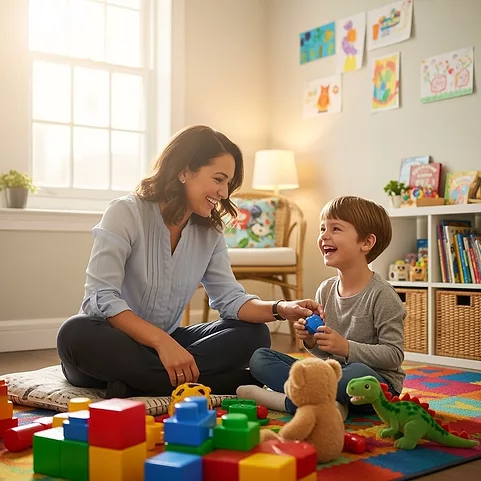Home » Adolescents and Sleep: Parents Can Make a Difference
Adolescents and Sleep: Parents Can Make a Difference
May 7, 2020
From The Carlat Child Psychiatry Report
Pavan Madan, MD
Dr. Madan has disclosed that he has no relevant financial or other interests in any commercial companies pertaining to this educational activity.
Review of: Peltz JS et al, Sleep 2019;zsz287
We know that sleep deprivation is an important contributor to mental health problems in teenagers. Studies show that adolescents need around 9.25 hours of sleep for optimal functioning, but most do not get adequate sleep for several reasons. Teens have a developmental drive to stay up later and sleep in longer. They also tolerate less sleep than younger children. Psychosocial factors like early school start times, poor sleep hygiene, nighttime screen exposure, and household culture can add to the problem (Crowley SJ et al, J Adolescence 2018;67:55–65).
Parents naturally give adolescents more freedom, but when they ask for guidance about sleep, what should we suggest? Would enforcement of sleep hygiene rules help? This study explores these questions.
Authors recruited 193 adolescents aged 14–17 via schools, parenting groups, and ResearchMatch (a national health volunteer registry). Parents completed baseline questionnaires on sleep-related rules, parent-teen bedtime conflict, and school start times. Adolescents were asked to complete daily sleep diaries (morning and evening) and were asked to rate their energy levels and depressive symptoms for 7 consecutive days.
On average, adolescents took 20 minutes to fall asleep, woke up for 3 minutes in the middle of the night, and slept 7.8 hours, much less than the recommended duration. Almost half of the parents did not enforce rules for bedtimes or for evening caffeine use, and a third had no rules for nighttime screen use.
More sleep correlated with better energy and fewer depressive symptoms (-0.34, p < 0.05). Daytime energy predicted (p < 0.001) lower levels of depressive symptoms in adolescents, with -0.71 correlation in the group but a more modest -0.25 within each adolescent. Teens slept more when schools started later: 7.3 minutes more sleep for every 29 minutes later school time, or if their parents enforced bedtime. These were small but statistically significant effect sizes (0.10). Interestingly, parent-teen disagreement regarding bedtime had minimal and insignificant impact on sleep duration. More surprisingly, parents’ curfew on media or caffeine intake did not improve sleep duration.
CCPR’s Take
Adolescents would likely have more energy and be less depressed if they got more sleep. Despite clear evidence that later school start times help teens’ sleep, only 14% of American high schools have altered start times. Later school starting times, including this spring with nearly all students home schooling, would improve sleep duration, and parental enforcement of bedtimes can be helpful. Emphasize these points to your adolescent patients and their parents, and advocate for changes in school schedules.
Child PsychiatryWe know that sleep deprivation is an important contributor to mental health problems in teenagers. Studies show that adolescents need around 9.25 hours of sleep for optimal functioning, but most do not get adequate sleep for several reasons. Teens have a developmental drive to stay up later and sleep in longer. They also tolerate less sleep than younger children. Psychosocial factors like early school start times, poor sleep hygiene, nighttime screen exposure, and household culture can add to the problem (Crowley SJ et al, J Adolescence 2018;67:55–65).
Parents naturally give adolescents more freedom, but when they ask for guidance about sleep, what should we suggest? Would enforcement of sleep hygiene rules help? This study explores these questions.
Authors recruited 193 adolescents aged 14–17 via schools, parenting groups, and ResearchMatch (a national health volunteer registry). Parents completed baseline questionnaires on sleep-related rules, parent-teen bedtime conflict, and school start times. Adolescents were asked to complete daily sleep diaries (morning and evening) and were asked to rate their energy levels and depressive symptoms for 7 consecutive days.
On average, adolescents took 20 minutes to fall asleep, woke up for 3 minutes in the middle of the night, and slept 7.8 hours, much less than the recommended duration. Almost half of the parents did not enforce rules for bedtimes or for evening caffeine use, and a third had no rules for nighttime screen use.
More sleep correlated with better energy and fewer depressive symptoms (-0.34, p < 0.05). Daytime energy predicted (p < 0.001) lower levels of depressive symptoms in adolescents, with -0.71 correlation in the group but a more modest -0.25 within each adolescent. Teens slept more when schools started later: 7.3 minutes more sleep for every 29 minutes later school time, or if their parents enforced bedtime. These were small but statistically significant effect sizes (0.10). Interestingly, parent-teen disagreement regarding bedtime had minimal and insignificant impact on sleep duration. More surprisingly, parents’ curfew on media or caffeine intake did not improve sleep duration.
CCPR’s Take
Adolescents would likely have more energy and be less depressed if they got more sleep. Despite clear evidence that later school start times help teens’ sleep, only 14% of American high schools have altered start times. Later school starting times, including this spring with nearly all students home schooling, would improve sleep duration, and parental enforcement of bedtimes can be helpful. Emphasize these points to your adolescent patients and their parents, and advocate for changes in school schedules.
Issue Date: May 7, 2020
Table Of Contents
Recommended
Newsletters
Please see our Terms and Conditions, Privacy Policy, Subscription Agreement, Use of Cookies, and Hardware/Software Requirements to view our website.
© 2025 Carlat Publishing, LLC and Affiliates, All Rights Reserved.


_-The-Breakthrough-Antipsychotic-That-Could-Change-Everything.webp?t=1729528747)



